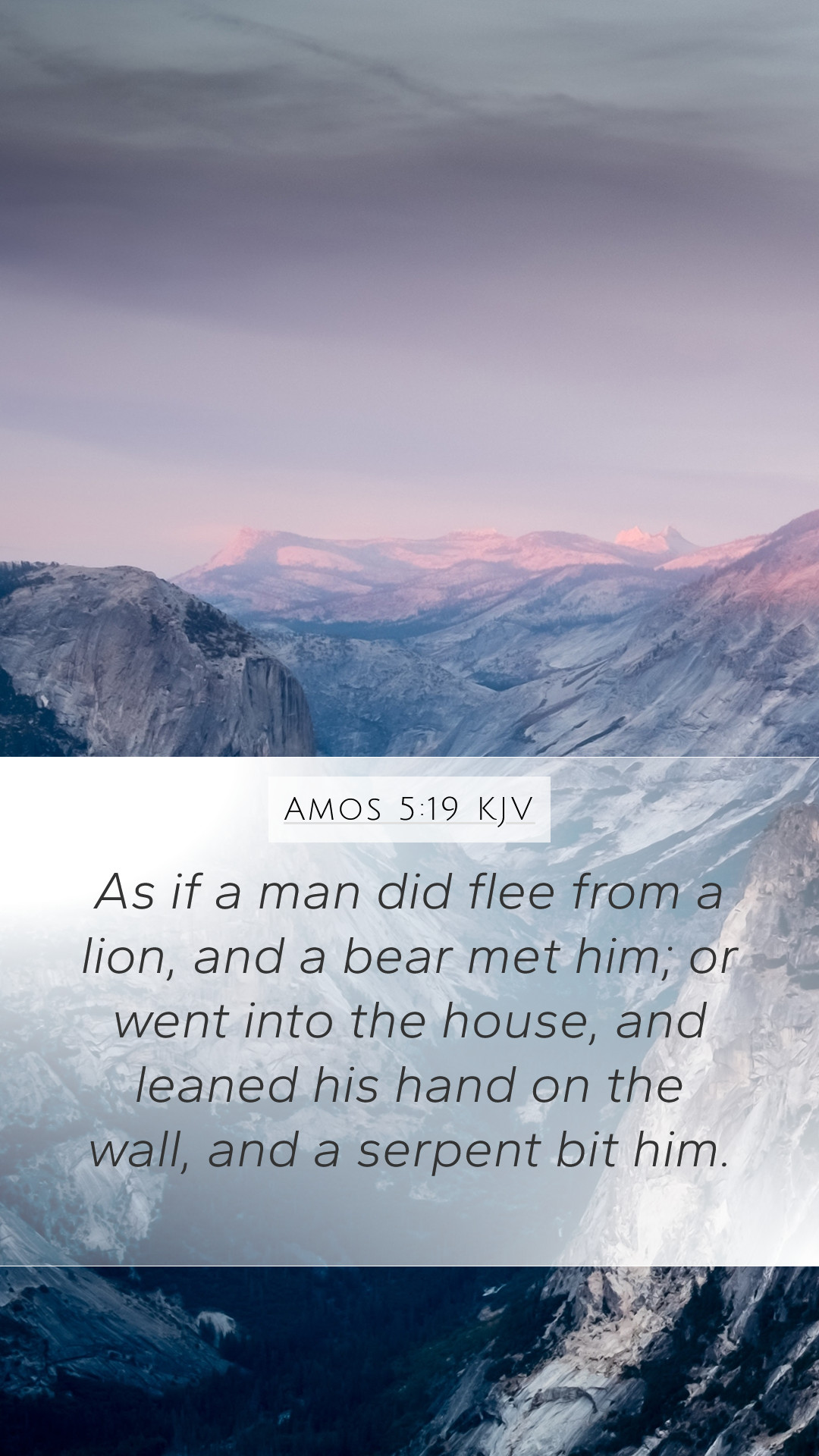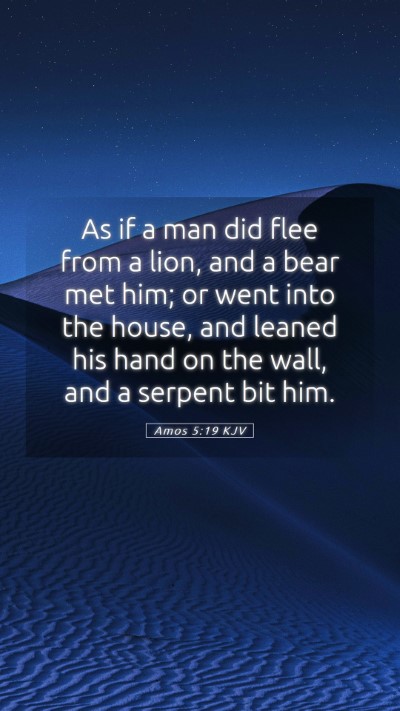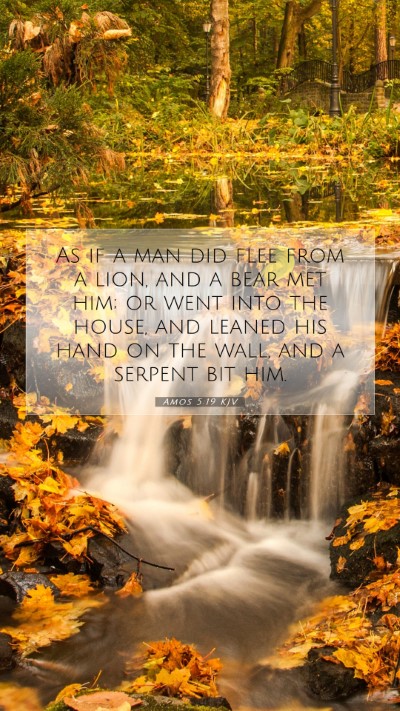Old Testament
Genesis Exodus Leviticus Numbers Deuteronomy Joshua Judges Ruth 1 Samuel 2 Samuel 1 Kings 2 Kings 1 Chronicles 2 Chronicles Ezra Nehemiah Esther Job Psalms Proverbs Ecclesiastes Song of Solomon Isaiah Jeremiah Lamentations Ezekiel Daniel Hosea Joel Amos Obadiah Jonah Micah Nahum Habakkuk Zephaniah Haggai Zechariah MalachiAmos 5:19 Meaning
What is the meaning of Amos 5:19?
As if a man did flee from a lion, and a bear met him; or went into the house, and leaned his hand on the wall, and a serpent bit him.
Amos 5:19 Bible Verse Meaning
Understanding Amos 5:19
Amos 5:19: "As if a man did flee from a lion, and a bear met him; or went into the house, and leaned his hand on the wall, and a serpent bit him."
Analysis of Bible Verse Meanings
This verse from the Book of Amos presents a vivid and unsettling image to convey the futility of escaping from divine judgment. The prophet Amos, addressing the people of Israel, uses this imagery to illustrate the inescapable consequences of their sins.
Commentary Insights
-
Matthew Henry:
Henry notes that the imagery of fleeing from a lion only to encounter a bear serves to emphasize the dire situation of the Israelites. It poignantly captures the relentless nature of sin, suggesting that one cannot escape judgment merely by changing circumstances.
-
Albert Barnes:
Barnes explains that this verse symbolizes the inevitable descent from one calamity into another, indicating that there is no safe refuge from divine wrath. The "serpent" biting in the safety of one’s own home represents the deceptive nature of false security.
-
Adam Clarke:
Clarke offers that the verse serves as a warning—a rhetorical question highlighting the absurdity of thinking one can evade God's impending justice. The nature of the calamities suggests the devouring nature of sin and disobedience.
Key Themes and Meanings
1. Inescapability of Divine Judgment: The combined imagery reveals that one cannot evade God's judgment. This theme resonates throughout the Scriptures, illustrating God's unyielding righteousness in contrast to human disobedience.
2. False Security: The idea that leaning on a wall for support—only to encounter danger—serves as a metaphor for misplaced trust. This highlights the need for a genuine reliance on God rather than worldly securities.
3. The Consequences of Sin: Each element of danger reflects the nature of sin. The verse serves not merely as a warning but as a plea for repentance, emphasizing that avoiding personal responsibility leads only to further peril.
Application of Scripture
This passage offers profound insights for those engaging in Bible study groups or seeking Bible study resources. The dire consequences of sin urge believers to reflect on their lives, ensuring they are not unwittingly placing their trust in false securities.
In applying this verse to daily life, one may consider:
- How do we identify and confront the 'lions' and 'bears' of our spiritual journeys?
- What are some false securities we rely on instead of God?
- In what ways can we foster genuine trust in God amidst life's uncertainties?
Related Bible Cross References
- Proverbs 14:12 - "There is a way that seems right to a man, but its end is the way to death."
- Ezekiel 18:30 - "Therefore I will judge you, O house of Israel, everyone according to his conduct, declares the Lord God."
- Matthew 7:13-14 - "Enter by the narrow gate. For the gate is wide and the way is easy that leads to destruction, and those who enter by it are many."
Conclusion
Understanding Amos 5:19 requires a serious reflection on the nature of sin and the futility of escaping consequences without true repentance. As we delve into this Bible verse interpretation, let us seek to apply its teachings, ensuring we lean on God for security and guidance.


